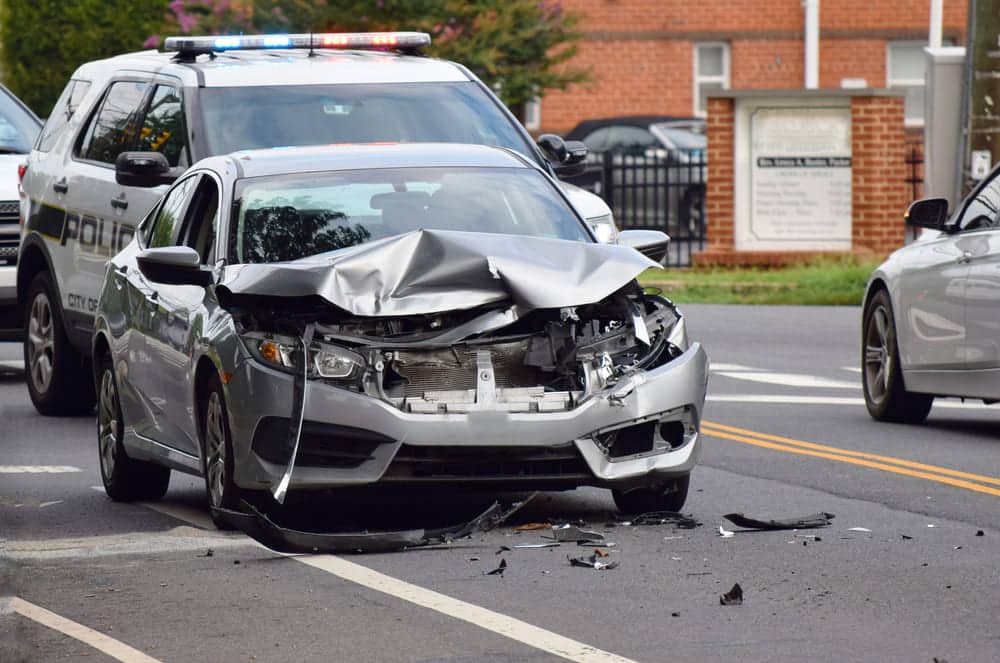If you’ve been in a car accident, you’re probably wondering who’s responsible for the damages and whether the Tampa police department accident report will reflect this information. In this blog, we’ll explore what the police report contains and how it’s used to determine fault in car accidents.
Yes, Police Reports in Tampa, FL of an Accident Say Who’s At Fault
Tampa police traffic accident reports do say who is at fault (unless there is a large amount of confusion, such as in the case of a multi-car accident). But even in the cases where the police don’t immediately
A Police Report is Not A Definitive Source of Who’s At Fault
First of all, it’s important to understand that the Tampa police accident report is not a definitive determination of fault. Instead, it’s a document created by the responding officers that provides a detailed account of the accident and its causes. The report is based on the officers’ observations and investigations at the scene, and includes information such as the location of the accident, the damage to the vehicles, and the names of the drivers involved.
How To Determine Who’s At Fault in a Car Accident
Car accidents can be a confusing and stressful experience, especially when it comes to determining who’s at fault. However, understanding how fault is determined can help you make informed decisions about what to do next. In this blog, we’ll explore the steps you can take to determine who’s at fault in a car accident.
Gather evidence at the scene
Immediately after the accident, try to gather as much evidence as possible. This can include taking photos of the damage to the vehicles, collecting the contact information of any witnesses, and getting the other driver’s insurance information. This evidence can be extremely valuable in helping determine who’s at fault.
Get a police report
In most cases, it’s a good idea to call the police after a car accident, even if it’s a minor fender-bender. The responding officers will create a police report that provides a detailed account of the accident and its causes. The report will include information such as the location of the accident, the damage to the vehicles, and the names of the drivers involved.
Review the evidence
Once you have all the information you need, it’s time to review the evidence. This can include the police report, photos you took at the scene, and statements from witnesses. Consider all the factors that may have contributed to the accident, such as speed, road conditions, and traffic laws. Use this information to determine who may have caused the accident.
Consult with an expert
In some cases, you may need to consult with an expert, such as an accident reconstruction specialist, to determine who’s at fault. These experts use advanced technology and techniques to recreate the accident and determine who may have caused it.
Talk to your insurance company
If you have insurance, contact your insurance company as soon as possible after the accident. They will review the evidence you’ve gathered and may be able to help determine who’s at fault. Keep in mind that insurance companies have a vested interest in minimizing their financial liability, so it’s important to be cautious about accepting their conclusions without reviewing all the evidence yourself.

Are Florida Crash Reports Public Record?
If you’ve been in a car accident in Florida, you may be wondering whether the crash report is a public record and available for anyone to access.
In Florida, traffic crash reports are considered public records and are available to anyone who requests them. This means that anyone can request a copy of a crash report, including insurance companies, attorneys, and media organizations. However, there are some exceptions to this rule, and some information may be excluded from the report if it falls under certain privacy laws.
For example, the names and addresses of witnesses may be redacted from the report to protect their privacy. Similarly, medical information about personal injuries of the drivers and passengers involved in the accident may be excluded if it falls under the Health Insurance Portability and Accountability Act (HIPAA).
If you need a copy of a Florida crash report, you can request one from the Florida Department of Highway Safety and Motor Vehicles (DHSMV). You can request a copy in person, by mail, or get the report online, and there is usually a fee for obtaining the report.
The Benefits of the Police Report
While the police report can provide valuable information, it’s not always enough to determine who’s at fault. In some cases, the officers may have trouble seeing the entire accident or may have conflicting accounts from the drivers involved. This can make it difficult to determine who was responsible for the accident and may result in the report not indicating who’s at fault.
So, what’s the significance of the police report in determining fault? The report is typically used as evidence in court or insurance claims. If there’s a dispute about who caused the accident, the report can help provide a clearer picture of what happened.
However, it’s important to keep in mind that the report is not a final determination of fault. Instead, insurance companies and legal proceedings may require a more comprehensive investigation to determine who’s responsible for the damages.
In conclusion, a Tampa police accident report can be a valuable tool in determining who’s at fault for a car accident, but it’s not a definitive answer. The report provides a detailed account of the accident based on law enforcement’s observations and investigations, but the final determination of fault may require a more comprehensive investigation.
Whether you’re involved in a minor fender-bender or a serious accident, it’s important to seek the assistance of an experienced attorney who can help you navigate the complex process of determining fault and seeking compensation for your damages.
Get your report today!
